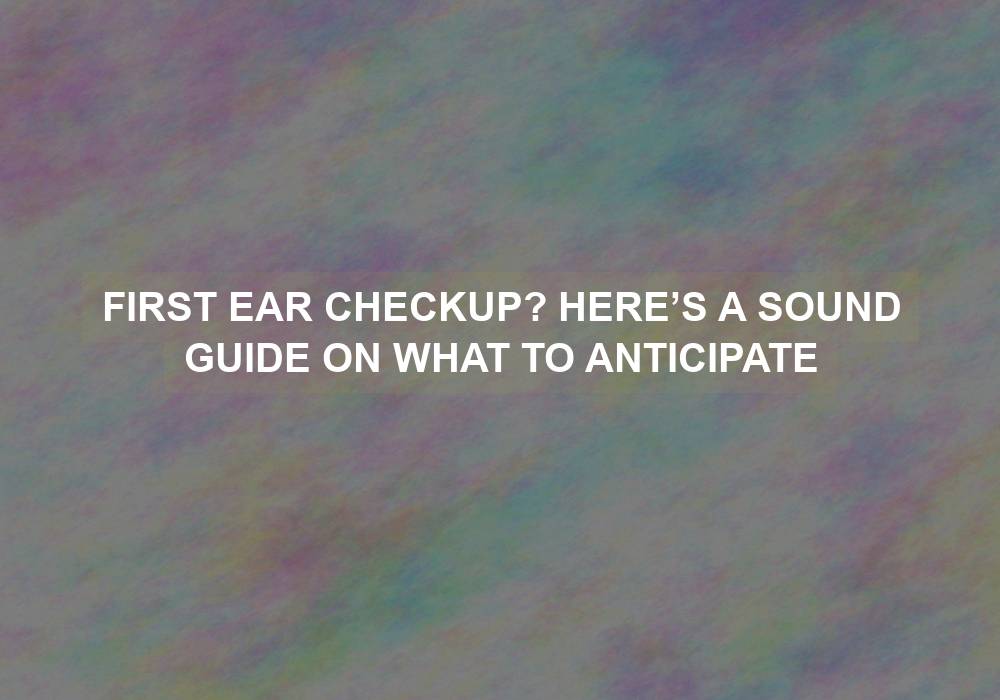When it comes to our overall health, taking care of our ears is often overlooked. However, regular ear checkups are essential in maintaining good ear health and preventing ear-related issues. Whether you are scheduling your first ear checkup or simply want to know what to expect during the process, this guide will provide you with all the necessary information.
Why is an Ear Checkup Important?
Regular ear checkups are important for several reasons. Firstly, they help in identifying any existing or potential problems with your ears, allowing for early diagnosis and treatment. This is crucial because many ear-related issues, such as infections or blockages, can worsen if left untreated. By having regular checkups, you can catch these problems early and prevent them from developing into more serious conditions.
Secondly, ear checkups enable healthcare professionals to monitor your ear health and ensure that your hearing abilities are at their best. Hearing loss is a common problem that can occur gradually over time. By having regular checkups, healthcare providers can track any changes in your hearing abilities and provide appropriate interventions to preserve your hearing.
What to Expect During Your First Ear Checkup
-
Medical History and Assessment: During your initial appointment, your healthcare provider will review your medical history in detail. They will ask you about any symptoms or concerns you may be experiencing, as well as any previous ear-related issues, surgeries, or allergies you have had. This step is important as it helps them gain a better understanding of your overall health and any pre-existing conditions that might impact your ear health.
-
Physical Examination: The next step involves a thorough physical examination of your ears. This examination may include a visual inspection of the external ear, ear canal, and eardrum using an otoscope. The healthcare provider will look for any signs of abnormalities, infections, or blockages. They will also check for any wax buildup or inflammation that may affect your hearing.
-
Hearing Assessment: A comprehensive ear checkup often includes a hearing assessment. This assessment involves various tests to evaluate your hearing abilities. For example, pure-tone audiometry measures your ability to hear different frequencies of sound, while speech audiometry assesses your ability to understand speech. Tympanometry measures the movement of your eardrum and can help detect any problems with the middle ear.
-
Middle Ear Analysis: In some cases, a middle ear analysis may also be conducted. This involves additional tests such as tympanometry and acoustic reflex testing. Tympanometry measures the pressure in your middle ear and can help identify any issues with the eardrum or middle ear bones. Acoustic reflex testing measures your reflexive response to sound and can provide further insights into the function of your middle ear.
-
Treatment Recommendations: Based on the findings from the ear checkup, your healthcare provider will discuss the results with you and provide appropriate recommendations. These recommendations may include further tests, treatment options, or preventive measures to maintain good ear health. For example, if a blockage or infection is detected, your provider may recommend specific medications or procedures to alleviate the issue.
-
Preventive Education: Your healthcare provider will also educate you on preventive measures to protect your ears and reduce the risk of future ear problems. This may include tips on ear hygiene, such as how to properly clean your ears without damaging them. They may also provide guidance on ear protection in noisy environments and the safe use of earphones or headphones. By following these preventive measures, you can reduce the likelihood of developing ear issues in the future.
Tips for a Successful Ear Checkup
To ensure a successful ear checkup and make the most out of your appointment, consider the following tips:
-
Be Prepared: Before your appointment, gather any relevant medical history, including previous ear-related issues, surgeries, or allergies. This information will help your healthcare provider better understand your ear health.
-
Communicate Clearly: During the checkup, describe any symptoms or concerns you may be experiencing in detail. This will help your healthcare provider accurately assess your ear health and provide appropriate recommendations.
-
Ask Questions: Feel free to ask questions or seek clarification about any aspect of the ear checkup process. Understanding the procedures and results will contribute to your overall well-being and help you make informed decisions about your ear health.
-
Follow Recommendations: After the checkup, follow any treatment recommendations or preventive measures suggested by your healthcare provider. This will help maintain good ear health and prevent future problems. If medications are prescribed, be sure to take them as directed and attend any follow-up appointments as scheduled.
Conclusion
Regular ear checkups are vital in ensuring good ear health and preventing potential issues. By understanding what to expect during your first ear checkup, you can approach the appointment with confidence. Remember to communicate openly with your healthcare provider, ask questions, and follow their recommendations for optimal ear care. Taking care of your ears now will contribute to better hearing and overall well-being in the long run.
